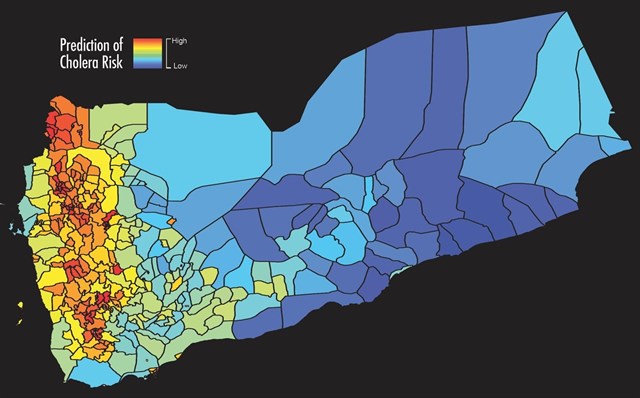Cholera Outbreak in Yemen Measured By NASA From Space With Its Satellites

Measurements from NASA’s Earth observation research satellites are being used, for the first time, to help combat a possible cholera outbreak in Yemen. Humanitarian country teams are focusing on areas identified by a US-funded project that accurately forecasts high-risk regions based on the environmental conditions observed from space by satellites.
Funded by NASA’s Applied Science Program, the research is led by hydrologist and civil engineer Antar Jutla of the University of West Virginia, along with Rita Colwell and Anwar Huq, microbiologists from the University of Maryland.
NASA’s forecasting tool divides all of Yemen into regions the size of a typical US county, and it predicts the risk of the potential cholera outbreak in each area. To estimate the likelihood of an epidemic, the team of scientists is running a computer model that combines satellite observations of environmental conditions affecting the cholera bacteria with information on sanitation and clean water infrastructure.
NASA satellites used to estimate the risks of a potential cholera outbreak in Yemen using models developed in 2017
In 2017, the prediction model achieved 92% accuracy in assessing which Yemen regions were more exposed to cholera that year, even identifying continental areas that are usually not susceptible to the disease but have experienced outbreaks. The cholera outbreak in Yemen was the worst in the world in 2017, with more than 1.1 million suspected cases and more than 2,300 deaths, according to the World Health Organization.
In January, the UK Department for International Development’s humanitarian adviser, Fergus McBean, contacted international humanitarian organizations to create and implement a cholera prediction system for Yemen within only four months. Also, the US researchers began working with the UK Weather Bureau, UK Aid, and UNICEF on the innovative approach to using the model to report on cholera outbreak risk reduction in Yemen.
Microbiologist Rita Colwell says the next step for the science team is to create global cholera outbreak risk maps.
0 comments